Andrei YANG
On April 13, the Quality Brands Protection Committee of the China Association of Enterprises with Foreign Investment (QBPC) held the April general membership meeting in Shanghai. Representatives from the Office of the National Leading Group for the Fight against IPR Infringement and Counterfeiting, market regulation agencies, courts, procuratorates, public security organs and customs, as well as nearly 200 member representatives attended the meeting.

QBPC Chair Michael Ding welcomed the audience. 2020 was an important year for the development of China's IPR protection system, and the completion of a series of legislative works had brought structural changes to the protection mechanism. In 2021, the QBPC would explore the impact of the new laws and regulations on the practice of intellectual property protection; continue to strengthen exchanges with the central and local law enforcement and judicial departments, and effectively solve difficulties and pains encountered by members in their daily work; fulfill the role of industry working groups—find common problems in the industry, and explore universally applicable solutions; and promote international exchanges, bring back constructive suggestions, and share the progress of IP protection in China on the world stage.

Keynote Speech
Deputy Director-General of the National Leading Group on the Fight against IPR Infringement and Counterfeiting, Deputy Director-General of the Department of Law Enforcement and Inspection of the State Administration for Market Regulation (DG Level) Lu Zhengmin delivered the keynote speech, introducing the latest progress under Chinese government’s IP protection and anti-counterfeiting efforts.
Remaining fair, open and convenient, China's business environment had been continuously optimized; foreign investment in China had maintained a good momentum of development, and foreign enterprises and China mutually benefited each other. Global foreign direct investment fell sharply in 2020, from $1.5 trillion in 2019 to $859 billion, down 42%. However, China's utilization of foreign investment, against the trend, increased by 4% to US $163 billion, ranking first in the world. China's overall epidemic prevention and control, economic and social development policies had provided a stable expectation and an open market for foreign enterprises. Director-General Lu stated that foreign investment was an important part of China's economy and the Chinese government had always attached great importance to it. President Xi had emphasized that China would continue to improve the open and transparent foreign-related legal system, strengthen IP protection, safeguard the legitimate rights and interests of foreign-invested enterprises and create a better business environment with quality public services. China's policy on foreign capital utilization would remain unchanged, the protection of the legitimate rights and interests of foreign-invested enterprises would remain unchanged, and the direction of providing better services for foreign enterprises to invest and develop in China would remain unchanged.
Strict protection, broad protection, timely protection and equal protection were key features of China's IPR protection system, which had reached a higher level. Lu stressed that the Chinese government equally protected the intellectual property rights of various market players, including foreign-invested enterprises. The promulgation of a series of laws and regulations, judicial interpretations and rule-setting documents such as the Civil Code, the Amendment XI to the Criminal Law, the Amendment to the Patent Law, the Amendment to the Copyright Law, the provisions on the administration of enterprise name registration, and the measures for the supervision and administration of online transactions had increased the amount of compensation to right holders, alleviate the burden of proof, reduced the duration to defend one’s rights in court and before agencies, and further improved China's judicial and administrative protection system for IPRs. Various special IPR protection joint actions by various departments investigated and handled a large number of illegal and criminal cases of infringement and counterfeiting on the Internet, in rural and urban-rural fringe areas, import and export sectors, and key areas relating to people’s livelihood, and protected the legitimate interests of right holders. In particular, the Director-General Lu mentioned that the State Council had revised the Administrative Provisions on the Registration of Enterprise Names (Order of the State Council [2020] No.734) to address the problem of infringement of enterprise names and trade names, an issue frequently raised by foreign-invested enterprises. The order clearly stipulated that "where an enterprise considers that another enterprise name has infringed upon the legitimate rights and interests of its trade name, it may file a lawsuit with the people's court or request the company registration authority that handles the registration of that name to handle the matter", which cured this long-term headache for relevant parties. In response to the online sales of fake products reported by right holders, the State Administration for Market Regulation issued the Measures for the Supervision and Administration of Online Transaction in March 2021, which provided an important basis for regulating online trading activities, maintaining online trading order and protecting the legitimate interests of all parties.
To crack down on infringements and counterfeiting, and protect IPRs, required contributions from all sectors of the society. In the formulation and revision of laws and regulations, judicial interpretations and rule-setting documents, all stakeholders, including foreign-invested enterprises, had actively put forward constructive opinions and suggestions. Social organizations had also played an important role in carrying out the special campaign, publicizing China's IPR protection work and telling China's IPR stories. Director-General Lu also paid special tribute to the positive contribution of QBPC in promoting social co-governance.
The new situation and new business models put forward higher requirements for the next step of work. Director-General Lu pointed out the major challenges facing the protection of IPR, such as the increasing number of cross-border crimes, increasing difficulties in governance, the rise of trade protectionism, and obstacles to scientific and technological exchanges. The year 2021 was the first year of the 14th Five-Year Plan, a year of special significance in the progress of China's modernization. The Office of the National Leading Group for the Fight against IPR Infringement and Counterfeiting would continue to conscientiously implement the decisions and arrangements of the CPC Central Committee and the State Council; and in light of the new situation and new challenges, NLGO would continue to strengthen overall coordination, intensify punitive measures, improve regulatory efficiency, promote social co-governance and deepen international cooperation.
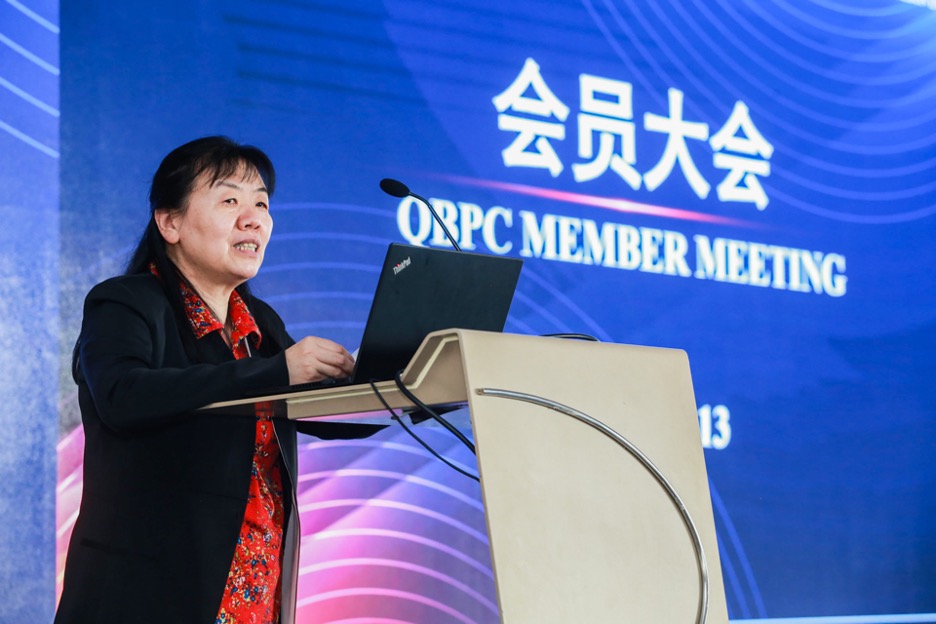
Innovative Measures to Aid Fulfilling Prosecutorial Duties
Hu Chunjian, director of the Fourth Division of Shanghai People’s Procuratorate and director of the Intellectual Property Procuratorial Office, introduced the overall statistics and characteristics of the handling of IP infringement cases by procuratorial organs in 2020. From the cases handled by the Shanghai procuratorial organs, it was not difficult to see that the means of committing IP infringements were upgrading and expanding. New and important cases occurred frequently in 2020. Counterfeiters had become more professional, their toolkits more intelligent, and their fakes more real. Some counterfeiters also transported goods abroad before labeling of counterfeit trademarks to avoid detections. The impact had shifted from the traditional luxury goods to other high-profit margin, consumer and industrial fields. Online infringement crimes continued to rise, such as selling counterfeit products online, using cloud services to infringe copyright, and had become the norm. In the infringement of trade secrets, the right holder should pay attention to not only the technical information, but also the business operation information that could help gain advantages in the market competition.
The establishment of IPR procuratorial office was a new measure to cope with the new trend of infringement crimes, serve and safeguard the national strategy, and enhance the ability to combat IPR crimes. In November 2020, the Supreme People's Procuratorate (SPP) began to integrate the criminal, civil and administrative procuratorial functions of intellectual property rights, set up an IPR procuratorial office, and decided to carry out the pilot program of centralized and unified exercise of IPR procuratorial functions in eight provinces and municipalities, including Beijing and Shanghai for a period of one year. The Shanghai Municipal People's Procuratorate had also decided to form an intellectual property procuratorial office in the Third Branch and six primary procuratorates to perform their duties in a unified manner. In addition to continuing to do a good job in criminal procuratorial work, the IPR procuratorial office would also explore more legal supervision channels to ensure the correct application of law in judicial adjudication, timely correct the acts of administrative organs in illegally exercising or failing to exercise their powers, and effectively protect the legitimate interests of right holders. In terms of staffing, the Shanghai IPR Procuratorial Office strived to achieve “one expert for each field”, so that there could be dedicated personnel in every field of IPR to do in-depth research.
A series of new measures had been introduced to help the procuratorial work. In 2014 the Shanghai Procuratorate took the lead in launching a program informing IPR holders' rights in proceedings against IP crimes. In 2019, the Supreme People's Procuratorate launched the pilot program in six provinces and two cities; and in February 2021, the Supreme People's Procuratorate decided to promote the pilot program nationwide. After many years of practice, Shanghai procuratorial organs had adopted flexible ways and thoughtful procedure of notifying the right holders, and the scope of the program had also expanded to other concurrent charges. On the basis of the program, the Shanghai procuratorate actively promoted the substantive participation of right holders in litigation, such as holding public hearings at the stage of trial and arrest. Especially in the more technical cases, right holders’ early participation provided a better foundation for handling the cases. The Shanghai procuratorial organ had also taken corresponding measures to improve compensations for right holders, strengthen the protection of service trademarks, and promote enterprises to establish compliance systems.
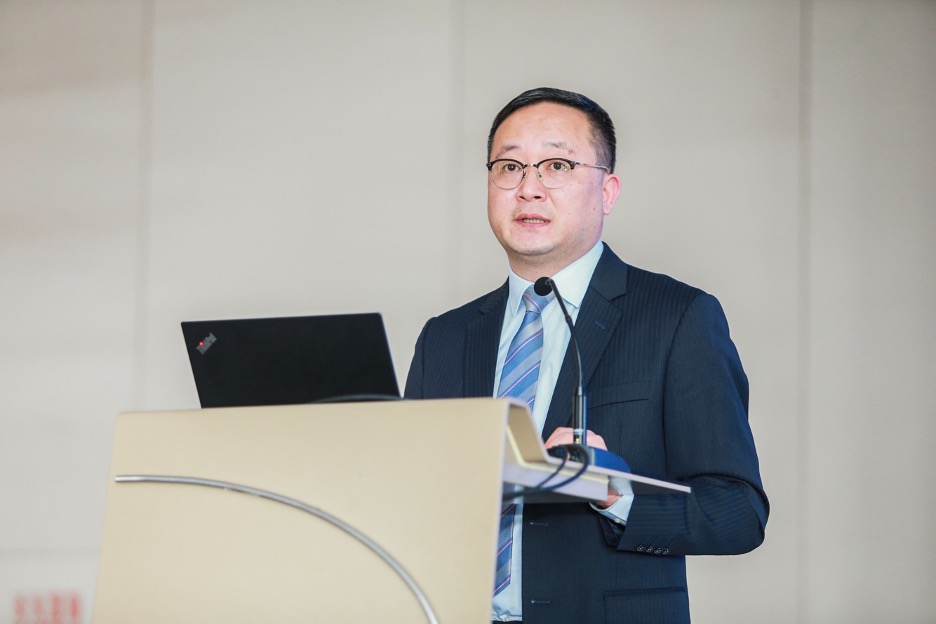
Strong Protection for Trade Secret is in Place
As a former member of judicial committee, Director of IP Division and Senior Judge of Higher People's Court of Jiangsu Province, a national expert in the trial profession, Song Jian shared with members the latest development in trade secret protection since the 2019 revision of the Anti-Unfair Competition Law (AUCL) based on years of experience on adjudication and research.
Article 32 of AUCL effectively alleviated the burden of proof for the right holder. Article 3 of AUCL provides the factor test for what constitutes trade secret, that is, it is not known to the public, has commercial value and the right holder has taken appropriate measures to maintain the secrecy. The first of these is the proof of secrecy, which is particularly troubling for the right holder because it is a negative fact. Although the judicial interpretations issued by the Supreme People's Court in 2006 provide the standards for determining the confidentiality, if the traditional evidentiary standard in civil cases, the clear and convincing evidence standard, continued to be applied, it would still be difficult for trade secret holders to deal with the misappropriations. Article 32 of AUCL solves this problem. According to Article 32, the right holder only needs to provide prima facie evidence in respect of satisfying the factor test and showing the infringing act; thereafter the burden of proof shall be transferred to the alleged infringer. The provision of "prima facie evidence" should be understood as lowering the standard of proof. As to what the standard then should be, it shall be decided on a case-by-case basis.
The characteristics of trade secret cases demand another look at the intersection and connection of civil and criminal proceedings. Although AUCL reduces the difficulty for the right holder to provide evidence, as a result of the application of the "beyond reasonable doubt" standard of proof in criminal cases, and in view of the fact that trade secret cases are generally highly technical, difficult and expensive to prepare expert testimonies, all these factors have brought significant challenges to the procuratorial organs. For cases in which the criminal judgment has already determined that a crime has been committed, the defendant may directly bear the burden of proof in the subsequent civil proceedings; for a criminal case with a prior civil proceeding, due to different standards of proof, how to apply the civil judgment in the criminal litigation needs further discussion.
New calculations have aided the determination of damages. Another difficulty in trade secret cases is that it is difficult for the right holder to prove its loss; if the right holder cannot show its loss, it is difficult to obtain compensation. In the recent judgment of the Supreme People's Court in the punitive damage case of "Carbo-mer" technical secret and the judgment of "Vanillin" technical secret case with high damages, the right holders supported their high claims by meticulously calculating the losses, which were eventually supported by the court. This is not to say that right holders need to support their claims with accurate numbers; but the applications of statistics valuation and economic analysis deserve our attention.
Strong protection of trade secret has positive effect on social welfare. Some people hold the view that patents exchange publicity for protection, which is a positive externality for the society; while trade secrets, because of their secrecy, do not contribute much to existing technology, and thus cannot bring such social benefits. But this viewpoint ignores what strong protection of trade secrets can do in energizing investments in innovation and R&D. Only when trade secrets are well protected, can talents move freely and promote even more technological innovations for the market players and the society as a whole.
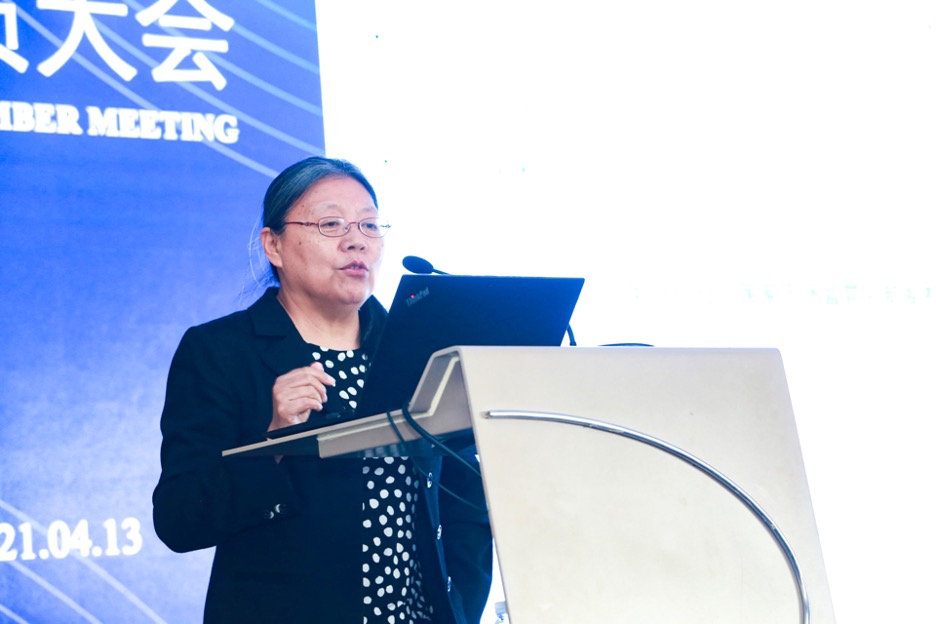
Stopping Infringements in Every link of the Criminal Chain
Head of Food, Drug & Environmental Crime Investigation Division of Shanghai Public Security Bureau Yu Meng disclosed in his speech that last year, Shanghai FDECID solved more than 1700 cases, arrested more than 4300 suspects, and protected more than 310 brands’ legitimate interests. Captain Yu also analyzed several significant cases, shared on the ground experience and insights, and gave members some thoughtful suggestions.
Smart technologies could detect risks and crack down on infringements and counterfeiting from the source. Using cloud storage, website, live-streaming and other Internet technology for infringement had become more and more common; the infringer's counter-surveillance ability had become more subtle. In view of this situation, the economic crime investigation department of the Shanghai Public Security Bureau pooled resources from the administrative regulatory authorities, e-commerce platforms, and internal data of the public security bureaus, and through systematic research, analysis and data penetration, accurately gave early warning and cracked down on infringements and counterfeiting, effectively curbed and blocked infringing products from entering the market, and protected the legitimate interests of the right holders.
After years of exploration and practice, the economic investigation department of Shanghai Public Security Bureau had formed a unique way to combat infringements. Criminals often dispersed their supply and distribution chains across multiple regions to avoid detection. Therefore, the public security organs needed to invest a lot of police force and resources to carry out investigation. In order to save resources and concentrate strength, for model cases, Shanghai PSB would investigate directly with assistance by relevant divisions; for complex cases with immature leads, Shanghai PSB would conduct preliminary investigations to develop the cases further, and divisions would follow up afterwards; for other leads, the divisions would handle the investigation with the support from the headquarter. It was with such a set of strategies that the economic investigation department of Shanghai PSB had made efficient use of its resources to solve a number of model cases.
To crack down the infringement and counterfeiting crimes completely required joint efforts by all stakeholders. Some information in the eyes of the right holder was simply common sense, but was not known to people outside the industry. Mastering such information could often help the public security organs to better utilize their data and more accurately investigate suspects. When the underlying data accumulated by law enforcement agencies, right holders, and platforms collide and merge, some previously unnoticed information would emerge and generate useful leads. But these kinds of collision and fusion could only be built upon regular exchanges and fully sharing of information.
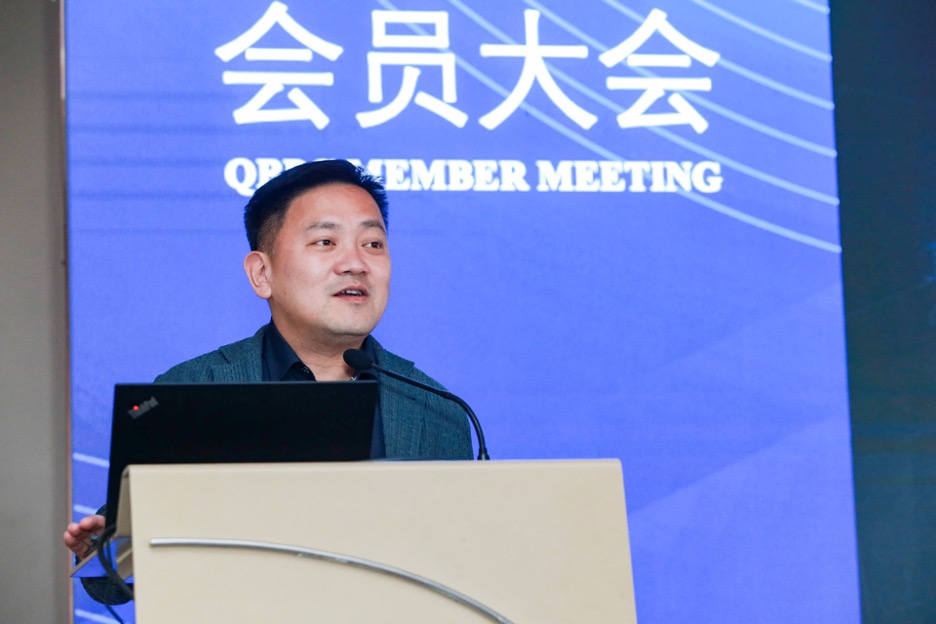
Guarding the Border: Customs Practices in IPR Protection
Border protection has been a key issue for QBPC members. For twenty years since its founding, QBPC has held more 200 exchanges, trainings, and other activities with customs across the nation. Deputy Director of Department of General Operation of Shanghai Customs Shen Yong introduced measures Shanghai Customs has taken to stop the movement of infringing products and noteworthy characteristics of their operations.
By taking advantage of the big data platform, the Shanghai Customs should effectively safeguard the legitimate interests of the right holders while facilitating the maximum expediency for law-abiding importers and exporters. In 2020, despite the impact of the epidemic, Shanghai Customs increased the number of seizures and the actual number of goods seized by more than 20%, ranking first in the country. Relying on Shanghai Customs’s big data platform for cross-border trade, and by integrating data from logistics, customs declaration, taxation and finance, Shanghai Customs was able to accurately control goods highly prone to infringement, thus significantly improving the pertinence and effectiveness of the crackdown on infringement.
Multi-dimensional cooperation is another pillar of strong support. On the basis of strengthening cross-customs cooperation with other customs offices, the Shanghai Customs and public security organs jointly carried out law enforcement operations in attacking the source, destroying the network and breaking the chain, improved the two-way information exchange and cooperation mechanism, and optimized the procedures bridging administrative and criminal enforcements. The Shanghai Customs also actively integrated into the local intellectual property protection work through signing memorandum of understandings with the local governments, and regularly sharing information with the market regulation and IP protection authorities. The Shanghai Customs had worked closely with right holders, industry organizations and international organizations in law enforcement training, intelligence sharing, facilitation of rights protection, etc.
Concentrate law enforcement resources, focus on key areas, and carry out special actions. On the 30th anniversary of the promulgation of the Copyright Law, the Shanghai Customs independently launched a special campaign against copyright infringement in import and export sectors, and achieved positive results. Selling fake products by mail was a long-term problem that had puzzled right holders. Therefore, the customs carried out the "Blue Net" campaign for the protection of IPR in delivery channels to seize more than 16,000 batches of infringing goods; deepened the connection between administrative and criminal enforcements, achieved the elimination of the infringing network to its very source, and maintained high pressure on infringers. Last year, under the supervision of the General Administration of Customs, the Shanghai Customs further strengthened the protection of IPR of imported and exported epidemic prevention gears, and by working more closely with public security organs, enhanced the scope of the crackdown operations and the deterrence of the law.
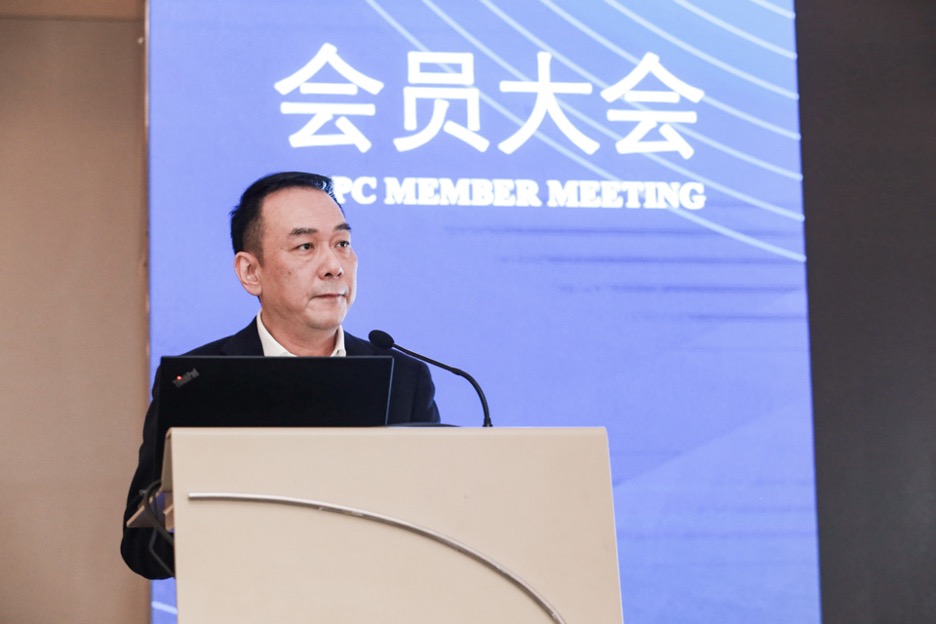
The End
Thus concluded the April general membership meeting. From the distinguished speakers’ remarks, it is obvious that China’s IP protection system has gradually matured. A grand and systematic protection scheme emerges. Brand building and innovation will become the focal point for all stakeholders. QBPC will continue to be the bridge that connects public and private sectors, implement what we have achieved in this conference, establish a regular information sharing scheme between right holders and enforcement and judicial agencies, and enhance the intensity and effect of cracking down on IP infringements.
